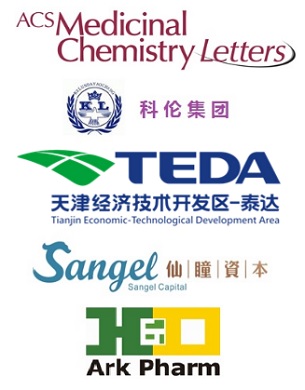国际新闻精选周六(2017年1月21日)
22 Case Studies Where Phase 2 and 3 Results Diverge: New FDA Report
With a growing interest from industry in exploring alternatives to Phase 3 trials (ie. relying on different types of data and unvalidated surrogate endpoints), the US Food and Drug Administration (FDA) on Thursday released a new report documenting 22 different times drugs, vaccines and medical devices since 1999 saw promising Phase 2 clinical trial results that were not confirmed in Phase 3 trials.
FDA says the report “is not intended to assess why each of these unexpected results occurred or why further product development was not pursued,” but to “illustrate the ways in which controlled trials of appropriate size and duration contribute to the scientific understanding of medical products.”【阅读全文】
A steady loser on the checkpoint R&D front, Bristol-Myers scores a $625M payout from Merck to settle patent fracas
Bristol-Myers Squibb may keep losing to Keytruda on key franchise initiatives, but at least now it can share in Merck’s good fortunes. Bristol-Myers and Ono have agreed to set aside their patent dispute over the PD-1 checkpoint drug in exchange for $625 million in cash and a 6.5% royalty on sales for the next 6 years.
Then, after 2023, the two companies will take a 2.5% cut of the action for the following three years. Bristol-Myers gets 75% of the action and Ono takes home 25%.【阅读全文】
Eli Lilly slashes 485 jobs, with ax falling heavily on faltering Alzheimer’s unit
Eli Lilly was so optimistic about its experimental Alzheimer’s treatment, solanezumab, the company staffed up in anticipation of its approval—a move that has proven to be a big mistake.
Indianapolis-based Lilly is now laying off 485 people, mostly in its faltering Alzheimer’s unit, the company told its city’s mayor and the Indiana State Department of Workforce Development in a letter sent under the federal Worker Adjustment and Retraining Act (WARN). The action is a direct result of its late November announcement that patients with mild to moderate Alzheimer’s disease who took solanezumab as part of its EXPEDITION3 trial showed no significant improvements in symptoms compared to placebo.【阅读全文】
Asco-GI – Opdivo heads close pack of anti-PD-1s in gastric cancer
The intense rivalry between competing anti-PD-1/PD-L1 antibodies in lung cancer has overshadowed their development in other solid tumours. This could change in the wake of the publication of the first positive phase III study of any checkpoint inhibitor, Bristol-Myers Squibb’s Opdivo, in advanced gastric cancer.
The ONO-4538-12 study, conducted by Bristol’s partner and the product’s originator, Ono Pharmaceutical, had already been reported as having hit its primary endpoint last November. However, no details were disclosed at the time, so the data were the highlight of the first day of the Asco-GI cancer symposium in San Francisco yesterday (see tables).【阅读全文】
Cytori to add cancer drugs, nanoparticle tech in Azaya deal
Cytori Therapeutics is set to gain cancer drugs and a liposomal nanoparticle technology platform through the acquisition of Azaya Therapeutics. The lead drug is a formulation of doxorubicin, the active ingredient in Johnson & Johnson’s off-patent ovarian cancer drug Doxil.
San Diego, CA-based Cytori thinks the lead program, ATI-0918, could come to market in Europe in 2019. That timeline assumes Cytori starts manufacturing preparations upon closing the takeover and goes on to file for approval early next year on the strength of a bioequivalence trial comparing ATI-0918 to Doxil. Cytori is weighing up whether to run a new study comparing ATI-0918 to the U.S. reference drug, Sun Pharma’s Lipodox.【阅读全文】
Rexahn Pharmaceuticals Presents an Update of the Ongoing Phase IIa Clinical Trial of RX-3117 in Metastatic Pancreatic Cancer at the American Society of Clinical Oncology (ASCO) 2017 Gastrointestinal Cancers Symposium
Rexahn Pharmaceuticals, Inc. (NYSE MKT:RNN), a clinical stage biopharmaceutical company developing next generation targeted therapeutics for the treatment of cancer, today announced an update on the safety and efficacy of RX-3117 in an ongoing Phase IIa clinical trial in metastatic pancreatic cancer at the American Society for Clinical Oncology (ASCO) 2017 Gastrointestinal Cancer Symposium in San Francisco California.
“The data on progression free survival in metastatic pancreatic cancer patients treated with RX-3117 is very encouraging with 20% of patients exhibiting progression free survival of greater than 5.6 months (with one patient having progression free survival of 7.2 months). A majority of the patients enrolled in the trial have already failed 3 or more prior cancer therapies. Current options for these patients are usually limited to palliative or best supportive care; there are no drugs approved for metastatic pancreatic cancer patients that have failed two or more prior therapies,” said Ely Benaim, M.D., Chief Medical Officer for Rexahn.【阅读全文】
How Takeda won a $5.2B bidding war — against itself
In the end, Takeda CEO Christophe Weber was bidding against himself in the negotiations to acquire Ariad $ARIA.
In an SEC filing posted today Ariad spelled out the back and forth that occurred between the biotech and its pharma buyer. Starting at $20 a share, Takeda had no problem getting the attention of the board at Ariad. But Ariad’s board never managed to get any new bidder to the table, shrugged off by the three companies the board felt were the most likely to make an auction really interesting.【阅读全文】
OncoMed Initiates Enrollment of Phase 1b Clinical Trial of Brontictuzumab for the Treatment of Metastatic Colorectal Cancer Patients
OncoMed Pharmaceuticals, Inc. (NASDAQ:OMED), a clinical-stage company focused on discovering and developing novel anti-cancer stem cell and immuno-oncology therapeutics, today announced dosing of the first patient in a Phase 1b clinical trial of brontictuzumab (anti-Notch1, OMP-52M51) plus chemotherapy in patients with metastatic colorectal cancer.
The Phase 1b trial is intended to determine the maximum-tolerated dose of brontictuzumab in combination with trifluridine/tipiracil (Lonsurf®). The Phase 1b trial is designed to assess safety, preliminary efficacy and immunogenicity, as well as predictive and pharmacodynamics biomarkers. Metastatic colorectal cancer patients who have received at least two prior lines of therapy will be enrolled in the dose-escalation portion of the trial, and once a maximum tolerated dose is identified, additional patients whose tumors test high for the activated form of Notch1 will be enrolled in an expansion cohort. 【阅读全文】
COX-2 ‘conjugate’ may slow growth of some tumors: study
More than a decade after the anti-inflammatory drugs Vioxx and Bextra were pulled from the market because of a heightened risk of heart attack and stroke in some patients, COX-2 inhibitors may be on the verge of a comeback, this time as anti-cancer agents.
That’s due in part to the persistence of researchers at Vanderbilt University School of Medicine, who previously demonstrated that they can “light up” tumor cells expressing the COX-2 enzyme in mice with “conjugated” compounds they’ve developed.【阅读全文】
美中药源原创文章,转载注明出处并添加超链接,商业用途需经书面授权。★更多深度解析访问《美中药源》~
★ 请关注《美中药源》微信公众号 ★



















 微信号:美中药源
微信号:美中药源